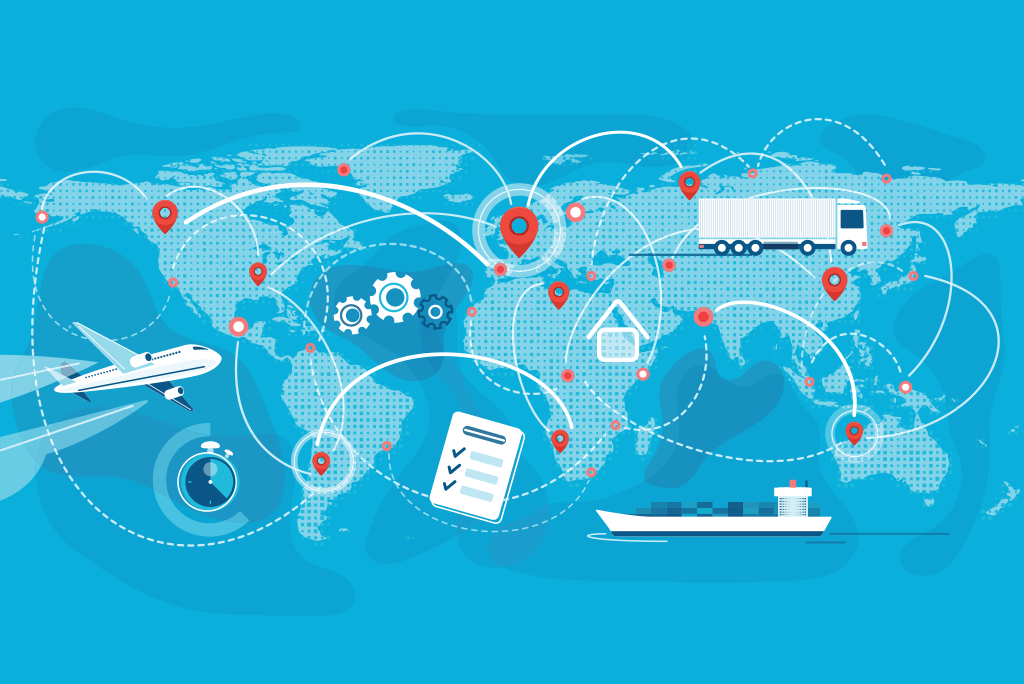
Improving transparency and security, preventing fraud, and reducing errors along supply chain routes are just a few of the ways blockchain can help businesses thrive. Perhaps the biggest benefit of all is the amount of time and money blockchain can save companies while boosting trust and customer loyalty.
“We see a major application of blockchain in supply chain operations,” Cindy Jaudon, a senior leadership team member at IFS, an enterprise software developer, told Forbes. “Blockchain enhances the traceability of goods through an indelible audit trail, improving security, transparency, and regulatory compliance. Businesses can also benefit from greater efficiencies by more quickly identifying where the supply chain might have been impacted, which will enable them to work toward a quicker resolution.”
How Blockchain is Transforming Supply Chains in the Seafood Industry
The seafood industry is just one example of how blockchain is elevating supply chains globally. For decades, seafood buyers had no way of knowing for sure where their fish came from or how it was processed. Now, some fisheries are using blockchain to give their customers insight into precisely where, when, and how of their products. All a customer has to do is scan a barcode to access details about the seafood stored on the blockchain. This decentralized digital ledger of transactions records data about the fish beginning with where it was caught. It can even include the name of the specific fishing vessel.
“When we catch the fish, we take the head, tail and fins off, then a digital tag gets attached to the trunk of each fish before it gets frozen onboard,” Steve Paku, a fishing captain who works for Austral Fisheries, which has been using blockchain technology since 2019, told The Guardian. “Blockchain backs up the traceability of the fish more substantially–I think this will become the norm in the future.”
When combined with DNA testing, blockchain can also provide information about the specific species of fish customers are buying. This can prevent fraud, a common problem in the seafood industry. Additionally, blockchain can prove to customers that their fish has been caught sustainably and ethically, a major step forward in solving the world’s overfishing problem. (Over 34% of fisheries are overfished, according to the United Nations Food and Agriculture Organization (FAO), a top authority on the industry).
How Will Blockchain Improve Food Supply Chains?
Within the food industry as a whole, blockchain is poised to dramatically transform supply chains. A few ways it will do so include:
Streamlined decision making: Due to silos within the industry, decision making within the current global food supply chain is often fragmented. Because blockchain gives all stakeholders insight into what’s happening in the supply chain, it enables them to make more streamlined decisions.
Reduced waste: By giving stakeholders end-to-end transparency throughout the supply chain, blockchain can help them quickly spot and fix problems (such as improper storage, temperature changes, and mishandling), and reduce food waste as a result.
Greater customer satisfaction: Within the current siloed food supply chain, a product’s history is often unclear, as in the case of seafood. As a result, many customers mistrust the information on their food packaging. However, blockchain gives companies the ability to tell customers exactly when, where, and how their food was processed. This transparency can increase customer trust and boost brand loyalty.
Increased clarity on where and how companies should invest their money: Because blockchain gives companies a clear picture into what’s happening in their supply chains, they are better able to pinpoint specific problems and issues within their operations, allowing them to make targeted investments and save money.
Blockchain is still in its infancy, and there is a long way to go before it can fully resolve some of the issues that plague today’s global supply chains. However, the technology has enormous potential to revolutionize entire industries and the supply chains they depend on. For those who adapt the technology early, the benefits can potentially be huge.
Understand Enterprise Blockchain for Your Industry
Besides food supply chains, what other industries can benefit from blockchain technology? Get Enterprise Blockchain for Healthcare, IoT, Energy, and Supply Chain, a five-course program from IEEE, to find out. Developed by leading experts in blockchain technology, this advanced program provides business use cases across key industries and sectors. It’s ideal for managers, professional engineers, as well as business leaders.
Contact an IEEE Content Specialist to learn more about how this program can benefit your organization.
Interested in getting access for yourself? Visit the IEEE Learning Network (ILN) today!
Resources
Choudhury, Saptarshi. (2 July 2021). How Transparency Will Elevate the Post-Pandemic Food Supply Chain. Supply Chain Brain.
Forbes Technology Council. (30 June 2021). 16 Tech Experts Share Blockchain’s Potential Outside The Finance Industry. Forbes.
Turns, Anna. (9 June 2021). Hook to plate: how blockchain tech could turn the tide for sustainable fishing. The Guardian.
How many fisheries are overfished, and what does that mean? Sustainable Fisheries.


No comments yet.